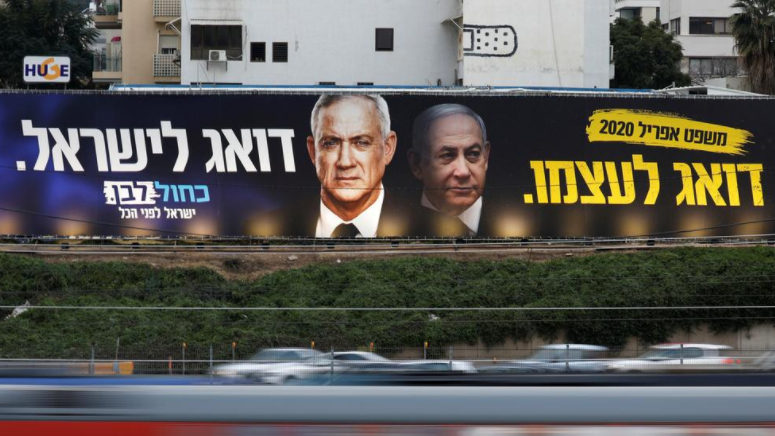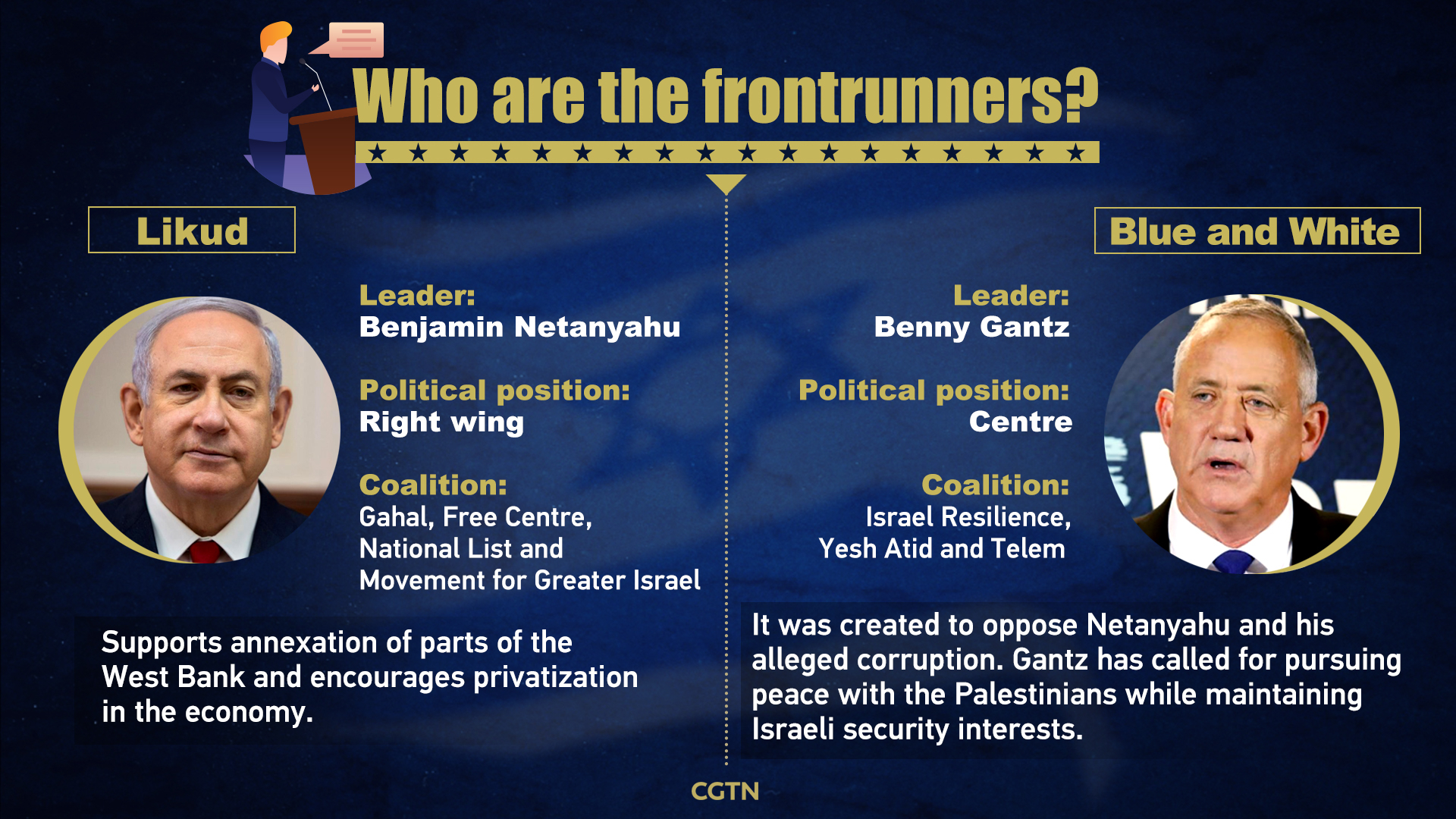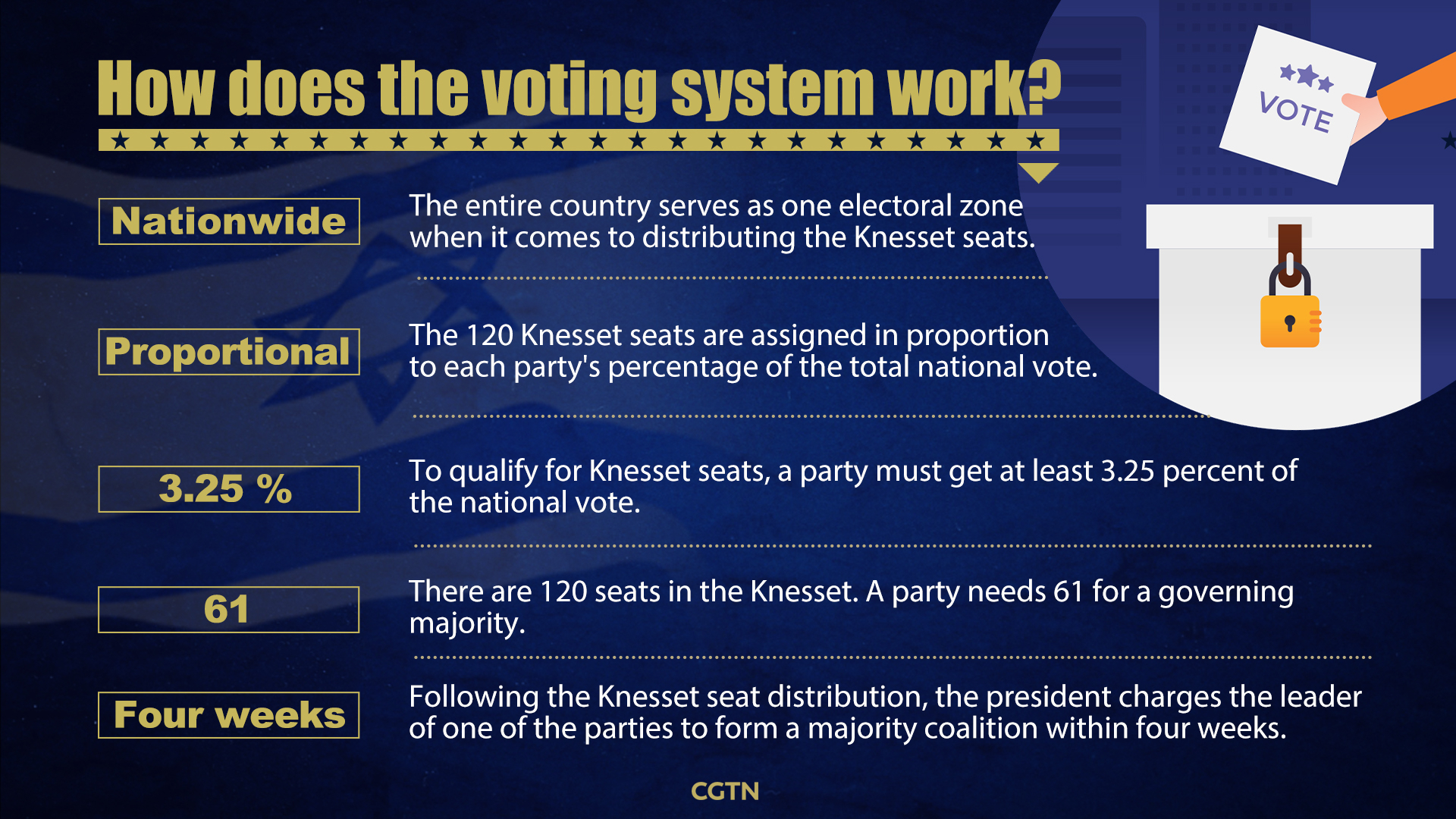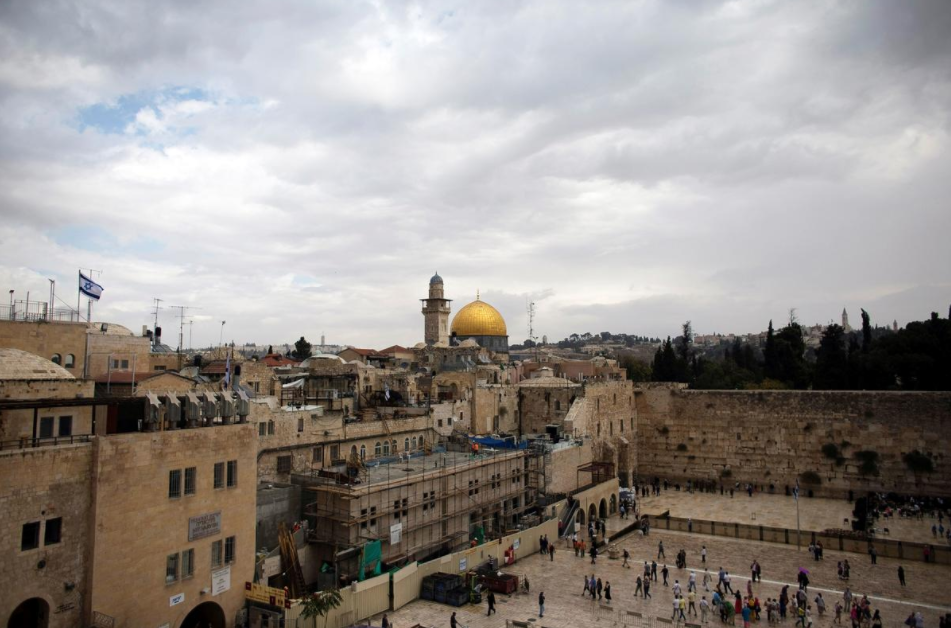01:43

Israel is embracing a third election within one year on Monday with a sense of deja vu. Voters are expecting an end to the political stalemate. Latest polls, however, indicate another tight contest despite the corruption charges against the prime minister and the release of the U.S. Mideast peace plan.
The previous elections in April and September both ended in deadlock, with Prime Minister Benjamin Netanyahu's Likud Party and the rival Blue and White, led by former military chief Benny Gantz, unable to secure parliamentary majority.
There have been some major developments in Israeli politics since the last polls. Prime Minister Netanyahu is facing charges of corruption, fraud and breach of trust and he is due to go on trial on March 17. U.S. President Donald Trump unveiled a Middle East peace plan in January, which has been rejected by Palestine but might bring a possible lift to Netanyahu.
Read more: Polls show Israel's political deadlock may persist, reasons explained

COVID-19 fear in the air, turnout unknown
Voter turnout is a big unknown with a country having three polls in less than a year, and the third vote now has a brand-new feature – fear of the worldwide spread of COVID-19.
Candidates have gone all out to bolster turnout. "I am encouraging citizens to get out and vote," Gantz told public radio Sunday. "You can't just sit at home clicking your tongue, saying, 'Oy vey! What's happening here?' Voting is critical," he said.

Meanwhile, Israel is feeling the jolt of the coronavirus outbreak as 10 people have been confirmed infected as of Sunday night.
Officials have warned that fears of new coronavirus transmission in densely packed polling stations could impact voter turnout.
More than a dozen biohazard voting places have been prepared for the election to accommodate the hundreds of Israelis who are quarantined because of possible contact with infected people.
'King Bibi's' legal troubles
Netanyahu, whose ardent supporters hail as "King Bibi" and Israel's longest serving prime minister, has become the first prime minister to be indicted while in office.
"Bibi" is suspected of wrongfully accepting 264,000 U.S. dollars worth of gifts, which prosecutors said included cigars and champagne, from tycoons, and of dispensing regulatory favors in alleged bids for improved coverage by a popular news website.
He could face up to 10 years in prison if convicted of bribery and a maximum three-year term for fraud and breach of trust.
Netanyahu has denied any wrongdoing. The court said he is expected to attend the initial hearing.
Israeli law required public officials to resign if charged with a crime, but that doesn't apply to a prime minister. If Netanyahu loses his position, he would go on trial as a private citizen.
In his campaigns, Netanyahu has made an all-out effort to distract voters from his trial. Gantz, meanwhile, has focused his whole campaign on Netanyahu's legal troubles, claiming he is unfit for the position.

Yohanan Plesner, president of the Israel Democracy Institute, a Jerusalem think tank, said it is difficult to predict how the scheduling of the trial will impact the election.
"The more the discussion is about Netanyahu as a defendant rather than Netanyahu as a statesman obviously does not work in Netanyahu's favor," he said.
Does Trump's deal help?
Trump unveiled his long-waited Mideast peace plan in January, which favored Israel greatly at the expense of the Palestinians. Many believe that the deal was to help Netanyahu to get re-elected.
Netanyahu attributed the deal to his close personal ties with Trump and said it can only be implemented if he is re-elected as prime minister.

A view of the Western Wall (R), Judaism's holiest prayer site, and the Dome of the Rock on the compound known to Muslims as Noble Sanctuary and to Jews as Temple Mount, is seen in this general view in Jerusalem's Old City, October 19, 2014. /Reuters
A view of the Western Wall (R), Judaism's holiest prayer site, and the Dome of the Rock on the compound known to Muslims as Noble Sanctuary and to Jews as Temple Mount, is seen in this general view in Jerusalem's Old City, October 19, 2014. /Reuters
However, Israeli voters have not been moved by it since it has barely no impact on the polls.
The Maariv poll, conducted by Menahem Lazar, director of the Panels Politics Institute, which was published on January 31, shows that, had the elections been held that week, after the unveiling of Trump's deal of the century, Blue and White would remain the largest party in Israel with 36 seats, trailed by Likud with 33.
To sway the votes, Netanyahu on Sunday said in an interview with Israeli public radio that annexation of the strategically crucial Jordan Valley and other parts of the West Bank was his top priority among "four major immediate missions."
"That will happen within weeks, two months at the most, I hope," he said.
Countdown to a fourth vote?
There will be a fourth vote if the deadlock is not broken this time. Further stalemate will not only bring political instability but also a fiscal paralysis as a 2020 budget is still pending in Israel.
Roni Rimon, a political strategist and partner in the Rimon Cohen & Co. public relations firm, said in a recent poll his office carried out that 70 percent of Blue and White voters – when faced with the alternative of a fourth election or joining a coalition even with Netanyahu as the Likud head – favored the latter option.
Many Israelis would like Netanyahu and Gantz to unite to avoid the endless votes. But Gantz said he will not partner with Netanyahu now that an indictment has been filed.